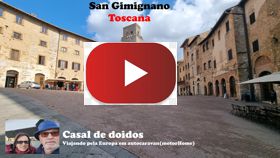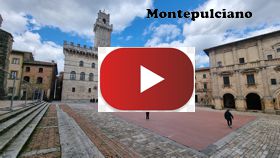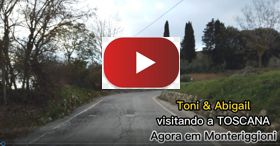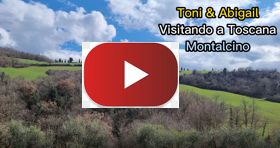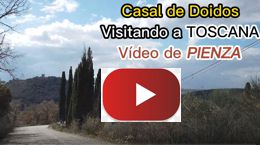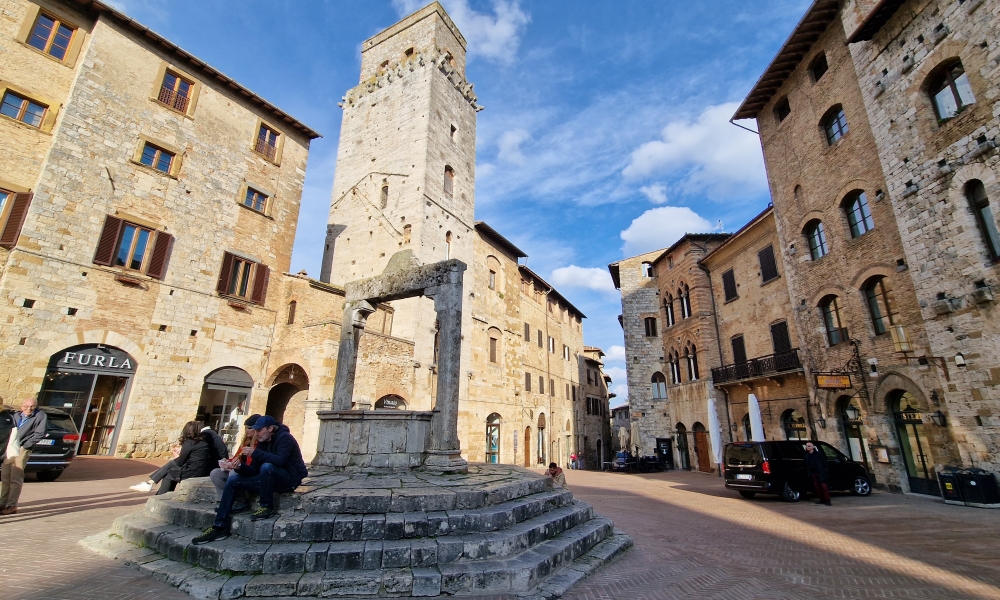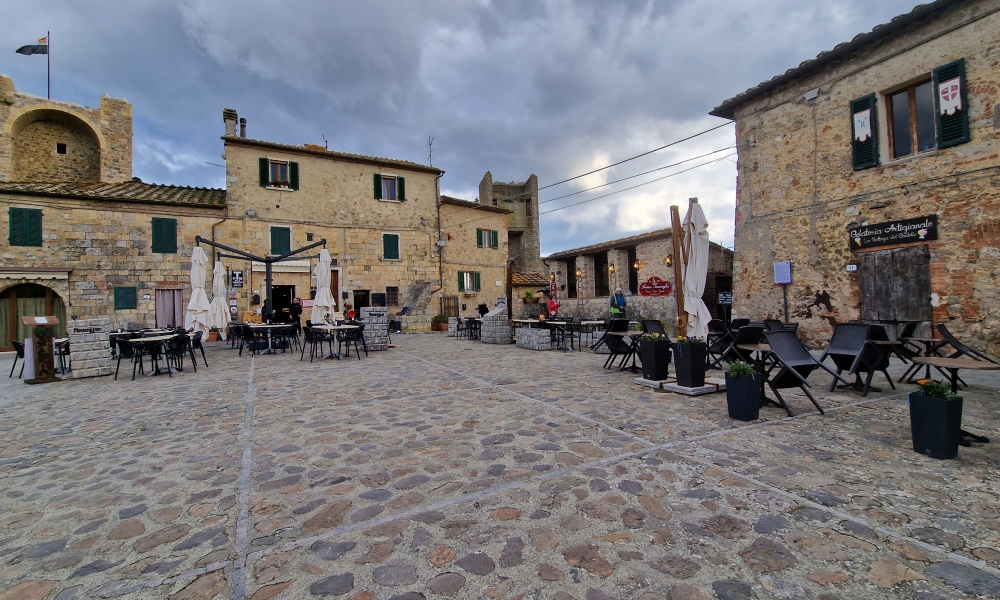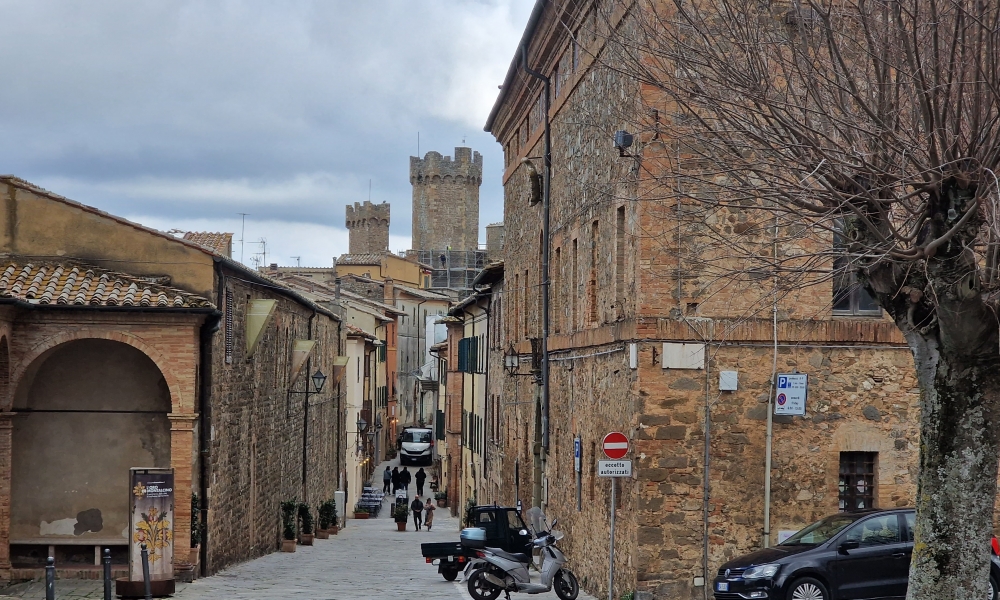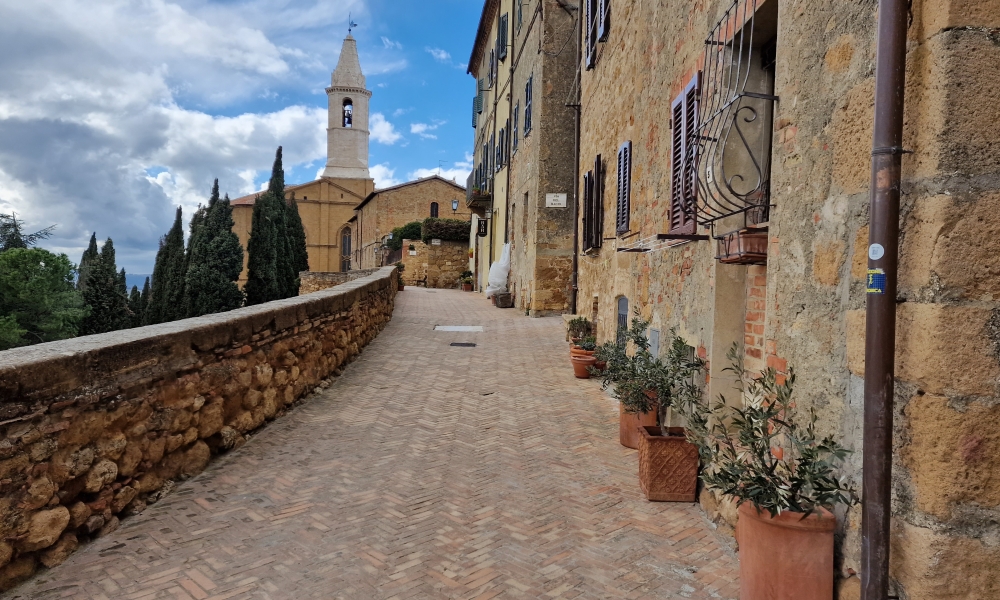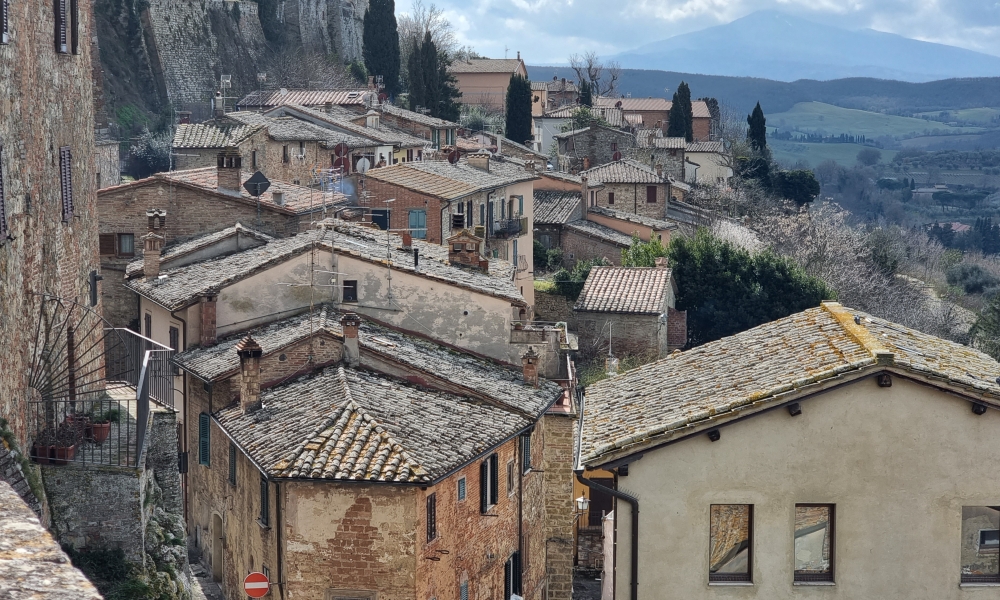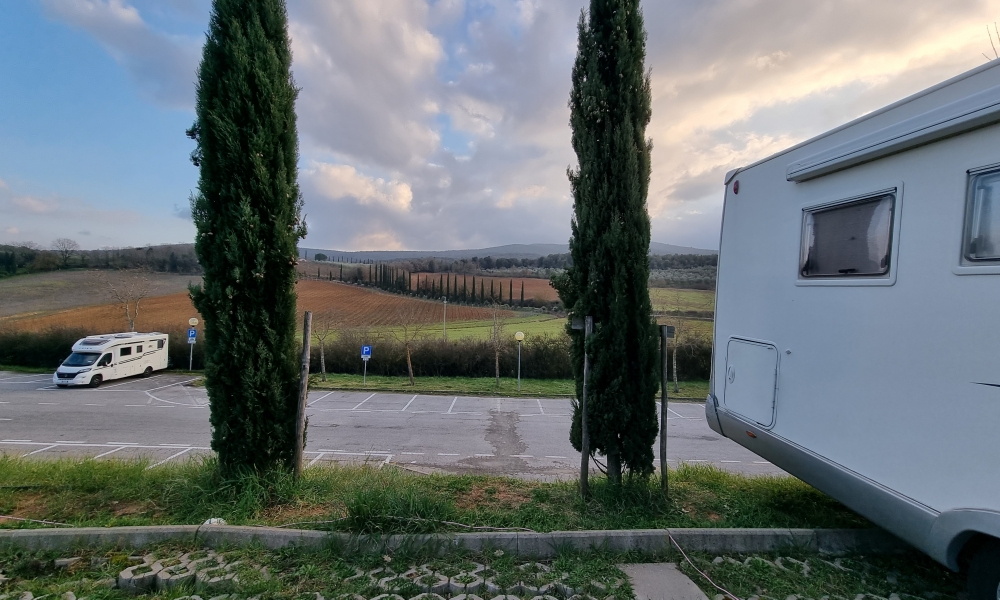Visiting Tuscany by rental car and motorhome
Recommended Season: All year
Starting Country: Italy
Recommended time: 3 days
Distance to travel: 200 km
Although we are traveling by motorhome, we decided that to get to know Tuscany with its landscapes and historic villages, the best way would be to park the motorhome in a park, rent a car and visit the villages in a faster, more practical and safer way.
So we based ourselves in the Monteriggioni campervan park and making a daily round trip we visited the villages we chose to visit, returning to the park every day.
We visited Montepulciano, Pienza, Montalcino and Monteriggioni on the same day and the next day we went to visit San Gimignano. Undoubtedly the best option. The distance between Monteriggioni and the different villages never exceeded 80km, which made it an easy and pleasant visit.
Below are videos of the different towns and cities we visited. After the videos, there is information 1 by 1 of each village, as well as the park where we parked the motorhome
So we based ourselves in the Monteriggioni campervan park and making a daily round trip we visited the villages we chose to visit, returning to the park every day.
We visited Montepulciano, Pienza, Montalcino and Monteriggioni on the same day and the next day we went to visit San Gimignano. Undoubtedly the best option. The distance between Monteriggioni and the different villages never exceeded 80km, which made it an easy and pleasant visit.
Below are videos of the different towns and cities we visited. After the videos, there is information 1 by 1 of each village, as well as the park where we parked the motorhome
The trip
San Gimignano
Lat: 43.464898 - Lon: 11.041463
N: 43° 27' 53.6328 " E: 11° 2' 29.2668"
N: 43° 27' 53.6328 " E: 11° 2' 29.2668"
Today, San Gimignano has just over 7,000 inhabitants and is located on top of a hill 334 meters high.
It had its economic splendor between 1199 and 1348, thanks to its agricultural products, (wines,
saffron and wool) and also the stop made by pilgrims coming from France towards Rome.
from that period, the decay and poverty unleashed by the black plague begins,
that devastated Europe, killing 2/3 of the population, which in the first half of the 14th century reached 13,000.
In 1354 it lost its independence and became part of the Grand Ducato Medici. Today he lives from agriculture and
tourism.
Upon entering its Walls, we were enchanted by the super well-preserved architecture, which seemed frozen in the
time, and walking along via San Giovanni, we were delighted with the Palaces and various little shops of
handicrafts and local products: such as wines, wild boar sausages and souvenirs. We arrived at the main square.
(Cisterna square), here we can rest and enjoy the local cuisine, there are restaurants and
a famous ice cream shop, Dondoli, which won the award for the best ice cream in the world.
we found nothing special), but it was worth the experience.
We looked around the Square and saw a fountain, which still has the marks of the ropes attached to the buckets, to draw the water,
and also the towers around it, currently there are 14 house-towers that surround the center of the village and that
they gave fame, (in the middle ages there were more than 70), and at that time it was a symbol of wealth and power. we give some
steps and we are already in Duomo Square, surrounded by towers, palaces and the imposing steps of the Duomo
Collegiata di Santa Maria Assunta, belfry tower, Palazzo comunale and Torre Grossa. (the only tower open to visitors),
and we can still admire the famous Twin Towers of the Salvucci family.
We will continue touring the medieval streets until we reach Rocca di Montestaffoli,
where there is a garden of olive trees and a viewpoint with a beautiful view of the countryside.
After soaking in history, nothing fairer than savoring the famous
Vernaccia wine from San Gimignano.
Its historic center was declared a world heritage site by UNESCO.
It had its economic splendor between 1199 and 1348, thanks to its agricultural products, (wines,
saffron and wool) and also the stop made by pilgrims coming from France towards Rome.
from that period, the decay and poverty unleashed by the black plague begins,
that devastated Europe, killing 2/3 of the population, which in the first half of the 14th century reached 13,000.
In 1354 it lost its independence and became part of the Grand Ducato Medici. Today he lives from agriculture and
tourism.
Upon entering its Walls, we were enchanted by the super well-preserved architecture, which seemed frozen in the
time, and walking along via San Giovanni, we were delighted with the Palaces and various little shops of
handicrafts and local products: such as wines, wild boar sausages and souvenirs. We arrived at the main square.
(Cisterna square), here we can rest and enjoy the local cuisine, there are restaurants and
a famous ice cream shop, Dondoli, which won the award for the best ice cream in the world.
we found nothing special), but it was worth the experience.
We looked around the Square and saw a fountain, which still has the marks of the ropes attached to the buckets, to draw the water,
and also the towers around it, currently there are 14 house-towers that surround the center of the village and that
they gave fame, (in the middle ages there were more than 70), and at that time it was a symbol of wealth and power. we give some
steps and we are already in Duomo Square, surrounded by towers, palaces and the imposing steps of the Duomo
Collegiata di Santa Maria Assunta, belfry tower, Palazzo comunale and Torre Grossa. (the only tower open to visitors),
and we can still admire the famous Twin Towers of the Salvucci family.
We will continue touring the medieval streets until we reach Rocca di Montestaffoli,
where there is a garden of olive trees and a viewpoint with a beautiful view of the countryside.
After soaking in history, nothing fairer than savoring the famous
Vernaccia wine from San Gimignano.
Its historic center was declared a world heritage site by UNESCO.
Monteriggioni
Lat: 43.388795 - Lon: 11.225468
N: 43° 23' 19.662 " E: 11° 13' 31.6848"
N: 43° 23' 19.662 " E: 11° 13' 31.6848"
Monteriggioni is a remarkable little village on top of a hill, in the heart of the Chianti region,
it houses a medieval fortress built by the Siennese in the 13th century, and soon after became a military outpost
with a strategic position that allowed the city to control Colle Val'd'Elsa and Staggia.
This gem with rounded shapes and its various towers, looks more like a stone crown, on top of the hill,
and anyone who ventures to discover the charms of this fortified and welcoming village will not be disappointed, it's like entering a tunnel
of time and discover yourself even in the medieval era, simple and very small, just two streets, which can be explored in a few
minutes, its square houses: restaurants, the church and a well, following the main street we find a craft shop,
the armi museum, a 4-star hotel, and a restaurant at the back where you can taste good cheese, accompanied by
Chianti wine.
Monteriggioni's charms also served as inspiration for poets like Dante Alighieri (Divine Comedy), in addition to being
stage of some films.
Today, about 50 people live in the city.
Best of all, it costs nothing to visit.
it houses a medieval fortress built by the Siennese in the 13th century, and soon after became a military outpost
with a strategic position that allowed the city to control Colle Val'd'Elsa and Staggia.
This gem with rounded shapes and its various towers, looks more like a stone crown, on top of the hill,
and anyone who ventures to discover the charms of this fortified and welcoming village will not be disappointed, it's like entering a tunnel
of time and discover yourself even in the medieval era, simple and very small, just two streets, which can be explored in a few
minutes, its square houses: restaurants, the church and a well, following the main street we find a craft shop,
the armi museum, a 4-star hotel, and a restaurant at the back where you can taste good cheese, accompanied by
Chianti wine.
Monteriggioni's charms also served as inspiration for poets like Dante Alighieri (Divine Comedy), in addition to being
stage of some films.
Today, about 50 people live in the city.
Best of all, it costs nothing to visit.
Montalcino
Lat: 43.056236 - Lon: 11.489321
N: 43° 3' 22.4496 " E: 11° 29' 21.5556"
N: 43° 3' 22.4496 " E: 11° 29' 21.5556"
Montalcino is a town located in the Tuscany region of central Italy, known for its picturesque landscape, renowned vineyards and the famous Brunello di Montalcino wine. The city was founded in the 9th century as a strategic fortress, which aimed to protect the region against attacks by invaders.
During the 12th century, Montalcino became an autonomous city, governed by an independent republic, which promoted the cultural and economic development of the region. The city was enlarged and fortified with walls and towers, which can still be seen today.
During the Renaissance, Montalcino became an important cultural and artistic center, attracting many important artists and intellectuals of the time. The city was protected by important aristocratic families, who sponsored the construction of public buildings, palaces and churches.
One of the most notable examples is the Church of Sant'Agostino, built in the 13th century, which houses a series of frescoes by the famous Renaissance painter Simone Martini. Another important attraction is the Fortress of Montalcino, built in the 14th century, which offers a spectacular panoramic view of the city and the surrounding area.
During the following centuries, Montalcino went through several political changes and faced the threat of invaders and wars. In 1555, the city was conquered by the Spaniards and became part of the Grand Duchy of Tuscany.
At the beginning of the 19th century, Montalcino became an important center of wine production, especially Brunello di Montalcino, a high quality red wine recognized worldwide. The wine is produced from Sangiovese grapes, which are grown in the hills around the city.
Today Montalcino is a charming town with narrow cobbled streets, restaurants and shops selling local handicrafts. The city attracts visitors from all over the world who come to admire the beauty of its landscape, taste the famous Brunello di Montalcino wine and explore the rich history that surrounds it.
During the 12th century, Montalcino became an autonomous city, governed by an independent republic, which promoted the cultural and economic development of the region. The city was enlarged and fortified with walls and towers, which can still be seen today.
During the Renaissance, Montalcino became an important cultural and artistic center, attracting many important artists and intellectuals of the time. The city was protected by important aristocratic families, who sponsored the construction of public buildings, palaces and churches.
One of the most notable examples is the Church of Sant'Agostino, built in the 13th century, which houses a series of frescoes by the famous Renaissance painter Simone Martini. Another important attraction is the Fortress of Montalcino, built in the 14th century, which offers a spectacular panoramic view of the city and the surrounding area.
During the following centuries, Montalcino went through several political changes and faced the threat of invaders and wars. In 1555, the city was conquered by the Spaniards and became part of the Grand Duchy of Tuscany.
At the beginning of the 19th century, Montalcino became an important center of wine production, especially Brunello di Montalcino, a high quality red wine recognized worldwide. The wine is produced from Sangiovese grapes, which are grown in the hills around the city.
Today Montalcino is a charming town with narrow cobbled streets, restaurants and shops selling local handicrafts. The city attracts visitors from all over the world who come to admire the beauty of its landscape, taste the famous Brunello di Montalcino wine and explore the rich history that surrounds it.
Pienza
Lat: 43.076075 - Lon: 11.680239
N: 43° 4' 33.87 " E: 11° 40' 48.8604"
N: 43° 4' 33.87 " E: 11° 40' 48.8604"
Pienza is a city located in the Tuscany region of Italy, known for its Renaissance architectural beauty and its rich and fascinating history. The city was founded in 1462, by order of Pope Pius II, born in Pienza itself, then known as Corsignano.
Pope Pius II, before being elected, had been an important humanist, and when he assumed the pontificate he decided to transform the city where he was born into an example of Renaissance architecture. For this, he hired the famous architect Bernardo Rossellino to design the city, which would be completely redesigned and rebuilt.
Rossellino's project included the construction of the cathedral, the papal palace, the Piccolomini Palace, the church of San Francesco and several other constructions. All of them were designed in a uniform and harmonious architectural style, which became a model for other Renaissance cities in Italy.
The city was built on steep terrain, with a spectacular view of the Orcia valley, which allowed Rossellino to design squares and buildings to take advantage of the panoramic view. The center of the city is Piazza Pio II, which is surrounded by gray stone buildings and has a central white marble fountain.
Pienza became an important cultural and religious center during the Renaissance, and attracted many important artists and intellectuals, including the poet Francesco Petrarca. During the 16th century, the city also became an important center for the wool trade, which brought wealth and prosperity to the region.
After the death of Pius II, the city passed through several owners and underwent several political changes. During World War II, the city was damaged by bombing, but it was restored post-war and became a UNESCO World Heritage Site in 1996.
Today, Pienza is a charming town with narrow cobbled streets, local craft shops, vineyards and cheese shops. The city continues to be an example of the best of Renaissance architecture, and attracts visitors from all over the world who come to admire the beauty of its buildings, its bucolic landscape and the rich history that surrounds it.
Pope Pius II, before being elected, had been an important humanist, and when he assumed the pontificate he decided to transform the city where he was born into an example of Renaissance architecture. For this, he hired the famous architect Bernardo Rossellino to design the city, which would be completely redesigned and rebuilt.
Rossellino's project included the construction of the cathedral, the papal palace, the Piccolomini Palace, the church of San Francesco and several other constructions. All of them were designed in a uniform and harmonious architectural style, which became a model for other Renaissance cities in Italy.
The city was built on steep terrain, with a spectacular view of the Orcia valley, which allowed Rossellino to design squares and buildings to take advantage of the panoramic view. The center of the city is Piazza Pio II, which is surrounded by gray stone buildings and has a central white marble fountain.
Pienza became an important cultural and religious center during the Renaissance, and attracted many important artists and intellectuals, including the poet Francesco Petrarca. During the 16th century, the city also became an important center for the wool trade, which brought wealth and prosperity to the region.
After the death of Pius II, the city passed through several owners and underwent several political changes. During World War II, the city was damaged by bombing, but it was restored post-war and became a UNESCO World Heritage Site in 1996.
Today, Pienza is a charming town with narrow cobbled streets, local craft shops, vineyards and cheese shops. The city continues to be an example of the best of Renaissance architecture, and attracts visitors from all over the world who come to admire the beauty of its buildings, its bucolic landscape and the rich history that surrounds it.
Montepulciano
Lat: 43.091601 - Lon: 11.782389
N: 43° 5' 29.7636 " E: 11° 46' 56.6004"
N: 43° 5' 29.7636 " E: 11° 46' 56.6004"
Montepulciano is a charming town located in Tuscany, central Italy. Its history is rich and goes back to the
time of the ancient Etruscans, who settled in the region around the 8th century BC.
Over the centuries Montepulciano has been ruled by different powers including Romans, Lombards and Byzantines. At the
thirteenth century, the city became part of the Republic of Siena, which left a significant cultural legacy in the city,
including the Cathedral of Santa Maria Assunta and the Palazzo Comunale.
During the Renaissance, Montepulciano experienced a period of great prosperity, thanks to its wool trade and the production of
wine. Many of the buildings that are now part of the city's historic center were built during this period,
including the Church of San Biagio, considered one of the most beautiful Renaissance churches in Italy.
In the 17th century, the city became part of the Grand Duchy of Tuscany and underwent a series of urban transformations,
including the construction of new fortifications and the beautification of squares and public buildings.
Today, Montepulciano is known as the "city of wine", thanks to the production of the famous wine Vino Nobile di Montepulciano,
that originates in the region. The city is a popular tourist destination, thanks to its rich history, culture and landscapes.
breathtaking views, including the green hills that surround the city.
time of the ancient Etruscans, who settled in the region around the 8th century BC.
Over the centuries Montepulciano has been ruled by different powers including Romans, Lombards and Byzantines. At the
thirteenth century, the city became part of the Republic of Siena, which left a significant cultural legacy in the city,
including the Cathedral of Santa Maria Assunta and the Palazzo Comunale.
During the Renaissance, Montepulciano experienced a period of great prosperity, thanks to its wool trade and the production of
wine. Many of the buildings that are now part of the city's historic center were built during this period,
including the Church of San Biagio, considered one of the most beautiful Renaissance churches in Italy.
In the 17th century, the city became part of the Grand Duchy of Tuscany and underwent a series of urban transformations,
including the construction of new fortifications and the beautification of squares and public buildings.
Today, Montepulciano is known as the "city of wine", thanks to the production of the famous wine Vino Nobile di Montepulciano,
that originates in the region. The city is a popular tourist destination, thanks to its rich history, culture and landscapes.
breathtaking views, including the green hills that surround the city.
Monteriggioni campervan park
Lat: 43.385954 - Lon: 11.228100
N: 43° 23' 9.4344000000001 " E: 11° 13' 41.16"
N: 43° 23' 9.4344000000001 " E: 11° 13' 41.16"
Located just outside Monteriggioni, the campervan park is just over 10 minutes' walk from the walled village.
It has excellent conditions, with water supply, water discharge and cassette, energy and clean and fragrant bathrooms with hot water for bathing.
This link has all the information about the park:
Monteriggioni motorhome park
It has excellent conditions, with water supply, water discharge and cassette, energy and clean and fragrant bathrooms with hot water for bathing.
This link has all the information about the park:
Monteriggioni motorhome park
Comments
Still has no comments for
Visiting Tuscany by rental car and motorhome
Leave your comment
Visiting Tuscany by rental car and motorhome
Leave your comment
Thank you
Other Routes
Visitando a Costa Amalfitana fazendo base em Pompeia
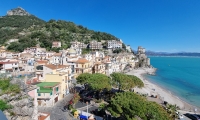
Itinerary for Moto
Itinerary for: Italy
Distance to travel: 140
Published by: Toni Martins
Roteiro das Praias da Costa Vicentina
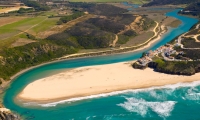
Itinerary for MotorHome
Itinerary for: Portugal
Distance to travel: 239 km
Published by: Antonio Martins
Roteiro Nápoles, Costa Amalfitana e Capri
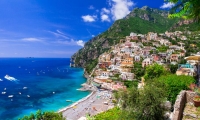
Itinerary for Any vehicle
Itinerary for: Italy
Distance to travel: 236 km
Published by: Toni Martins
Visitando Pisa em autocaravana (MotorHome)
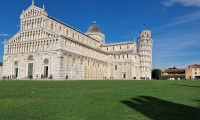
Itinerary for: Italy
Published by: Toni Martins
Visitando as Cascate del Mulino, Termas de Saturnia
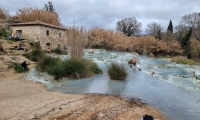
Itinerary for: Italy
Published by: Toni Martins
O que visitar, o que fazer em Buenos Aires
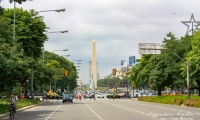
Itinerary for: Argentina
Published by: Angela Martins
Rota do Rio Guadiana
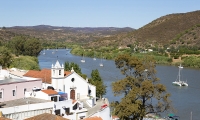
Itinerary for Any vehicle
Itinerary for: Portugal
Distance to travel: 309 km
Published by: Antonio Martins
Passamos pela Eslovénia e fomos visitar as grutas de Škocjan, Postojna e o castelo de Predjama
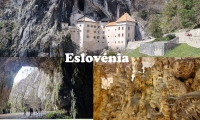
Itinerary for: Slovenia
Published by: Toni Martins
Rota das Aldeias de Xisto
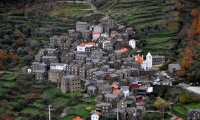
Itinerary for Any vehicle
Itinerary for: Portugal
Distance to travel: 429 km
Published by: Antonio Martins
Rota das Cidades Históricas de Minas Gerais
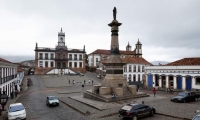
Itinerary for Any vehicle
Itinerary for: Brazil
Distance to travel: 1061 km
Published by: Antonio Martins
Visitando Soajo, Lindoso e Aldeia das Pontes
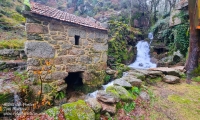
Itinerary for: Portugal
Distance to travel: 36km
Published by: Toni Martins
1ª Etapa - Viagem pela Europa em autocaravana (MotorHome)
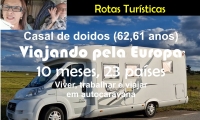
Itinerary for: Portugal
Published by: Toni Martins
Rota das Praias do Algarve
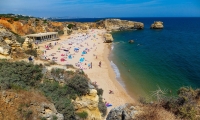
Itinerary for Any vehicle
Itinerary for: Portugal
Distance to travel: 200km
Published by: Antonio Martins
Rota dos vinhos, das vilas e cidades mais bonitas da Alsácia
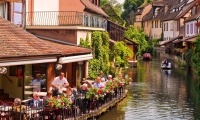
Itinerary for Any vehicle
Itinerary for: France
Distance to travel: 138 km
Published by: Toni Martins
Internet Satélite para autocaravana, como funciona e quanto custa

Itinerary for: Portugal
Published by: Toni Martins
Roteiro dos Alpes Franceses
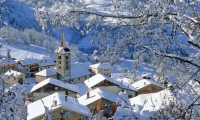
Itinerary for Any vehicle
Itinerary for: France
Distance to travel: 1041 km
Published by: Toni Martins
Roteiro dos Mais Belos Lagos de Itália
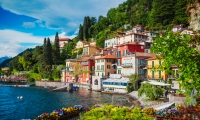
Itinerary for Any vehicle
Itinerary for: Italy
Distance to travel: 1305 km
Published by: Toni Martins
Roteiro das praias e vilas históricas da região de Porto Seguro
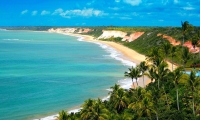
Itinerary for: Brazil
Distance to travel: 155 km
Published by: Toni Martins
Rota do Cacau
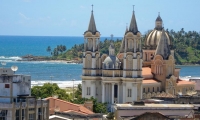
Itinerary for Any vehicle
Itinerary for: Brazil
Distance to travel: 750 km
Published by: Antonio Martins
8 países (Republica Checa, Áustria, Eslováquia, Hungria, Croácia, Eslovénia, Itália, Alemanha)
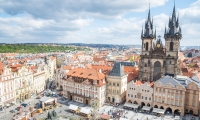
Itinerary for Any vehicle
Itinerary for: Czech Republic
Distance to travel: 3370 km
Published by: Antonio Martins
Roteiro para visitar Cinque Terre em Autocaravana (MotorHome)
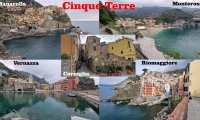
Itinerary for: Italy
Published by: Toni Martins
Escapadinha de fim de semana a Elvas no Alentejo
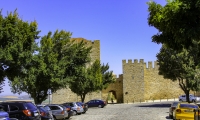
Itinerary for: Portugal
Published by: Toni Martins
O que visitar, onde e quando visitar a Ilha do Faial
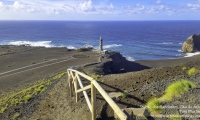
Itinerary for: Portugal
Published by: Toni Martins
Visitando a Toscana em carro de aluguer e autocaravana
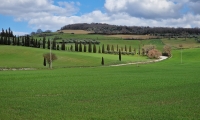
Itinerary for: Italy
Distance to travel: 200 km
Published by: Toni Martins
Roteiro dos Castelos e Palácios do Vale do Loire
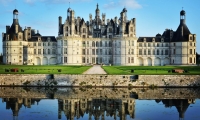
Itinerary for Any vehicle
Itinerary for: France
Distance to travel: 309 km
Published by: Toni Martins
Visitando a Aldeia de Pitões das Júnias
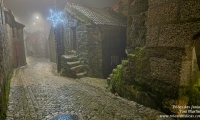
Itinerary for: Portugal
Published by: Toni Martins
Rota das Barragens ao Sul do Rio Tejo
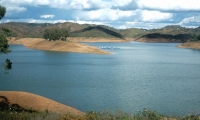
Itinerary for Any vehicle
Itinerary for: Portugal
Distance to travel: 749 km
Published by: Antonio Martins
Rota de Ushuaia a Chaiten no Chile via Porvenir
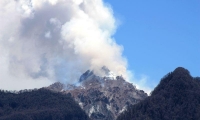
Itinerary for 4x4
Itinerary for: Argentina
Distance to travel: 3120 km
Published by: Antonio Martins
Rota de Buenos Aires a Ushuaia ao longo da Ruta 3
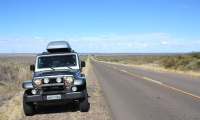
Itinerary for 4x4
Itinerary for: Argentina
Distance to travel: 3900 km
Published by: Antonio Martins
Rota dos Pirenéus Espanhóis
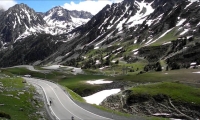
Itinerary for Any vehicle
Itinerary for: Spain
Distance to travel: 668 km
Published by: Toni Martins
Why to book with CLUBE TRAVEL
The best prices
Our partnerships with the world´s largest operators offer research on the best market prices.
More options
At Rotas Turisticos you can book the hotel, buy the air ticket, book the transfer from the airport to the hotel and vice versa, book the local excursions, rent the car, take travel insurance and consult the places to visit and where to go.
Holiday Tips & Destinations
Hundreds of holiday destinations with all the options that allow you to easily choose the destination that best suits your dream vacation.
CLUBE TRAVEL
Links

